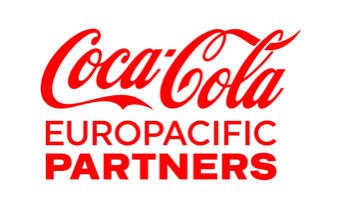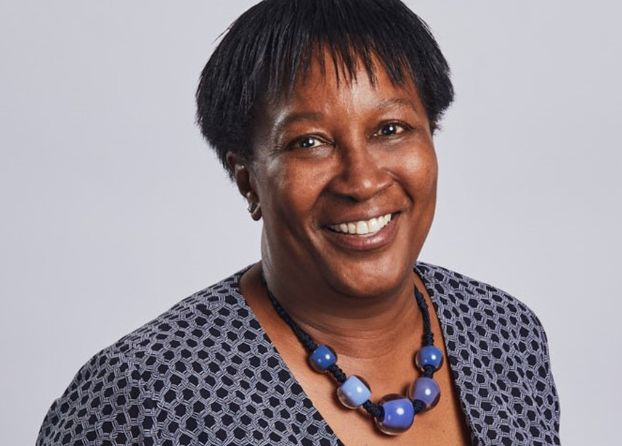Describe your role and how it has evolved at CCEP
My role at CCEP is Head of Early Careers and Apprenticeships. I deal with an age range of probably 16 to 25 for a lot of our programmes. Apprenticeships, graduate schemes, internships and placements. My job is all about identifying and creating opportunities to bring early career talent into our business. But in addition to that, I work with a number of organisations that support school outreach to raise our profile. We try to answer questions like: what is CCEP? Who is CCEP? What do they do? Show them that we offer work experience for, you know, that sort of 15 to 18 age range. It allows an insight into the world of Coca-Cola. Our early careers roles have evolved quite a bit since we started the programme back in 2017: initially it was very much focused on apprenticeships and driving the number of female apprentices in engineering. The types of apprenticeships we had and what we could offer to from an early careers perspective also changed quite a bit. They now involve what’s called ‘career builder apprenticeships’, which are for those who are either existing staff or potentially somebody who is looking for a total career change but wants to undertake it via an apprenticeship. So, we have opportunities to upskill future capabilities. In my role, I’m an enabler to be able to support that.
What kind of organisations do you have partnerships with at CCEP, within the early careers market?
In the early careers market, we have been really focused on the agenda that we’re looking to achieve and how partner organisations can support that agenda. For example, they help us to be able to support underrepresented groups and to bring more diverse candidates into the organisation. We partner with a number of organisations: one is Youth Employment UK, one of the key government voices for youth unemployment. They do the youth census each year and that really tells us what the young people of today are thinking about and what is important to them when they are looking for employment and working with employers. That gives us a really good insight when we go to market on how we position ourselves. We also work with an organisation called Uptree. They are only about five years old, so they are quite start-up and they initially focused on South-East London. Very much with a view to working, again, with unrepresented groups, whether that be ethnically diverse backgrounds, getting more females into STEM or those who come from a low socio-economic background. They host a number of different events throughout the year where they bring together a lot of those groups. Attending these helps us because we may have not previously been able to connect with those groups. Our reach just isn’t big enough and those events therefore allow us to open up our opportunities to an even wider candidate base.
We also work with the BAME Apprenticeship alliance. Again, they are very much focused there on those from Black and ethnic minority backgrounds and reaching into those communities to share the job opportunities that we have. And then another one – although not directly dedicated to the early careers market but instrumental to our apprenticeship offering – is the National Skills Academy for Food & Drink because they identify what happens in food and drink and what types of careers young people are interested in. We put a number of our early career apprentices through the Food & Drink ambassador training. They then go back out to market and talk about what it is like to have a career in the industry. Those are just some of the partners we work with, but they are probably the main ones.
How would you describe the early careers programme that you’ve developed at CCEP?
The early careers programme at CCEP is an award-winning programme. When we initially focused on centralising our apprenticeships back in 2014, we didn’t have an early careers programme; we just had an apprenticeship programme. And when we centralised and focused on it, lots of young people had said they didn’t know that Coca-Cola had apprenticeships. So, then we really went out and developed our offering in terms of the types of apprenticeships that we want to be able to offer in the marketplace. But more importantly, we then realised that we needed more than one pathway for somebody to join our organisation. We’ve kind of created a chart, from an early careers perspective, that says you have an opportunity to gain work experience with us, or do things like the government kickstart scheme. It allowed people to come into our organisation through that pathway and the apprenticeship pathway, which I talk a lot about. And then we’ve just reintroduced the graduate scheme back into the organisation to support future succession planning for those who took the more traditional university route. In addition to that, we have the more ad hoc opportunities, such as internships and summer placements. As a result, we now have an early careers programme that is suited to our business strategy but also creates opportunities for those who may want to join an organisation through a different pathway. Now we’ve got that great opportunity for them to be able to do that at any point.
What’s your policy on being able to offer someone a job after they finish their apprenticeship or graduate scheme?
One of the things that has been really important in the development of our early careers – and in particular looking at apprenticeships and the graduate scheme – is that we haven’t gone for large numbers of people. We’ve kept our number of hires quite small because our aim is to give them a really rich experience, whether that be through the apprenticeship or graduate scheme. Equally as important is that we retain them and put them in permanent positions once they have completed their programme. Because we are trying to build leaders, stars, talent of the future! By putting all that investment in them it means that they will want to stay within our organisation and that we, in return, have the opportunities for them to stay within our organisation. Some businesses may take on hundreds of apprentices or graduates a year and then only effectively keep the cream of the crop. We don’t go for that. We go for quality over quantity. The ones we’ve got are the ones we want to stay.
Finally, what would be some advice you would give someone thinking of applying at CCEP?
My advice for someone applying to our organisation would be: don’t be put off by the job advert. Quite often, you might look at a job advert and discount yourself, even if you are the perfect person for it. Just take away that barrier. If you think it’s right or feels right, then apply for that job. If you’re applying for a job, one of the most useful things to do is to connect on LinkedIn. Find some people at CCEP and connect, even if it’s before you have identified a job that you might want. Think to yourself: that’s a company I want to apply for. Connecting with people will give you a great opportunity to ask them what its like to be part of the organisation. And you know, I realise it’s really hard. Think to yourself: what other opportunity could I have to build my career here? We’re a global organisation. We are Europacific; it’s what it says on the company name. So, think to yourself: When I join CCEP, I could start in a particular job but the world is my oyster to move around the globe with this organisation. Think about the here and now, but also that longer term ambition.


